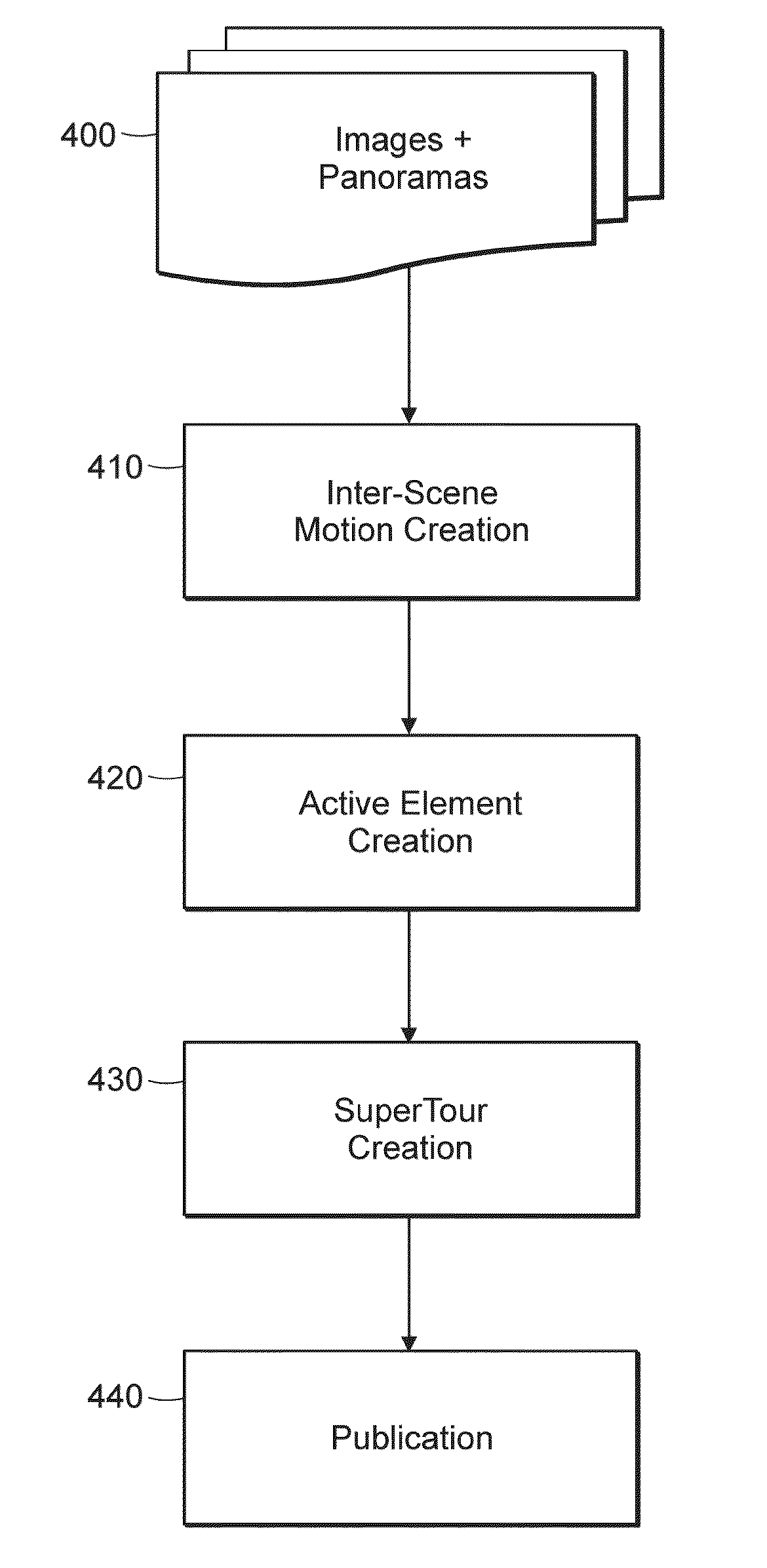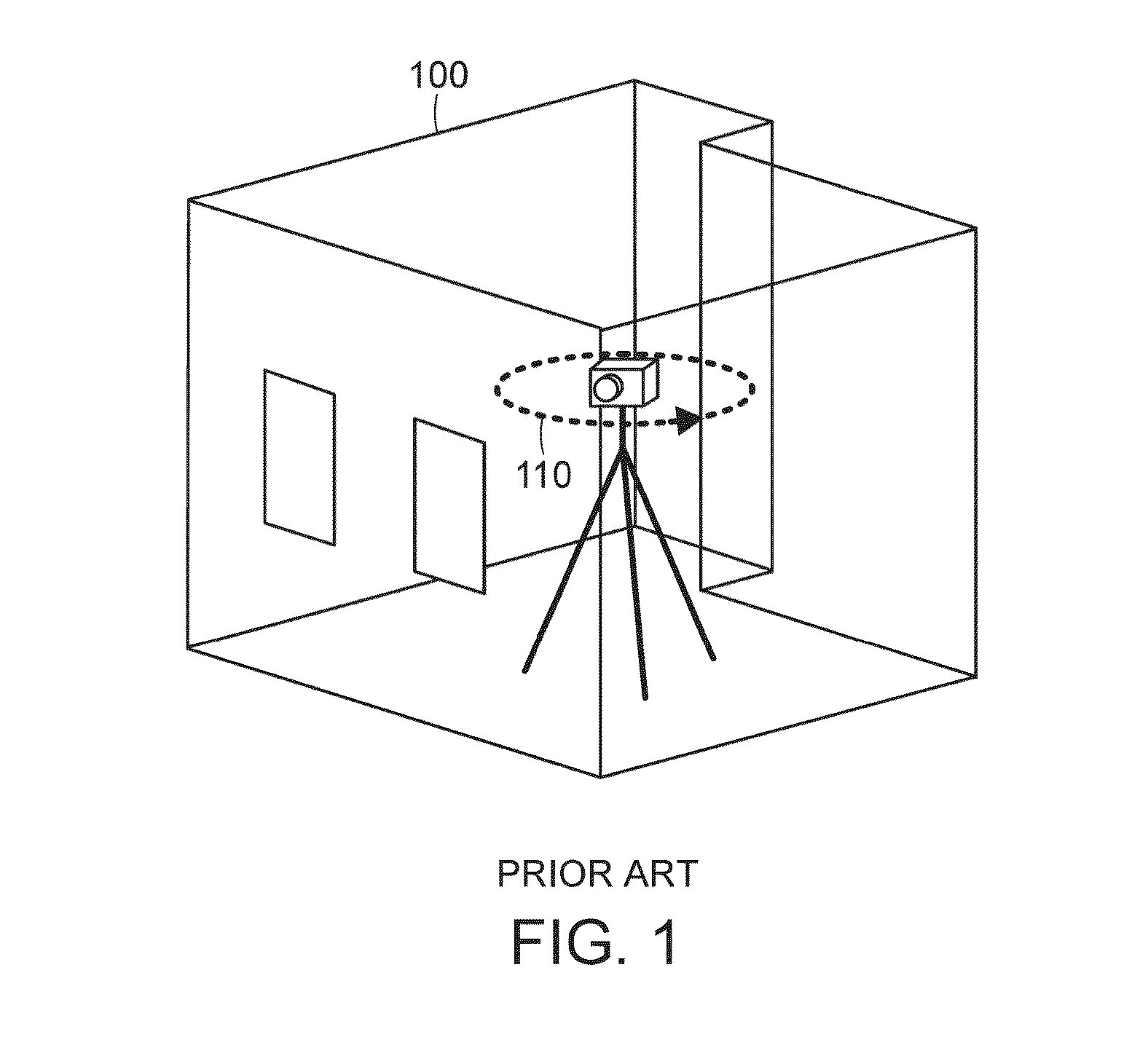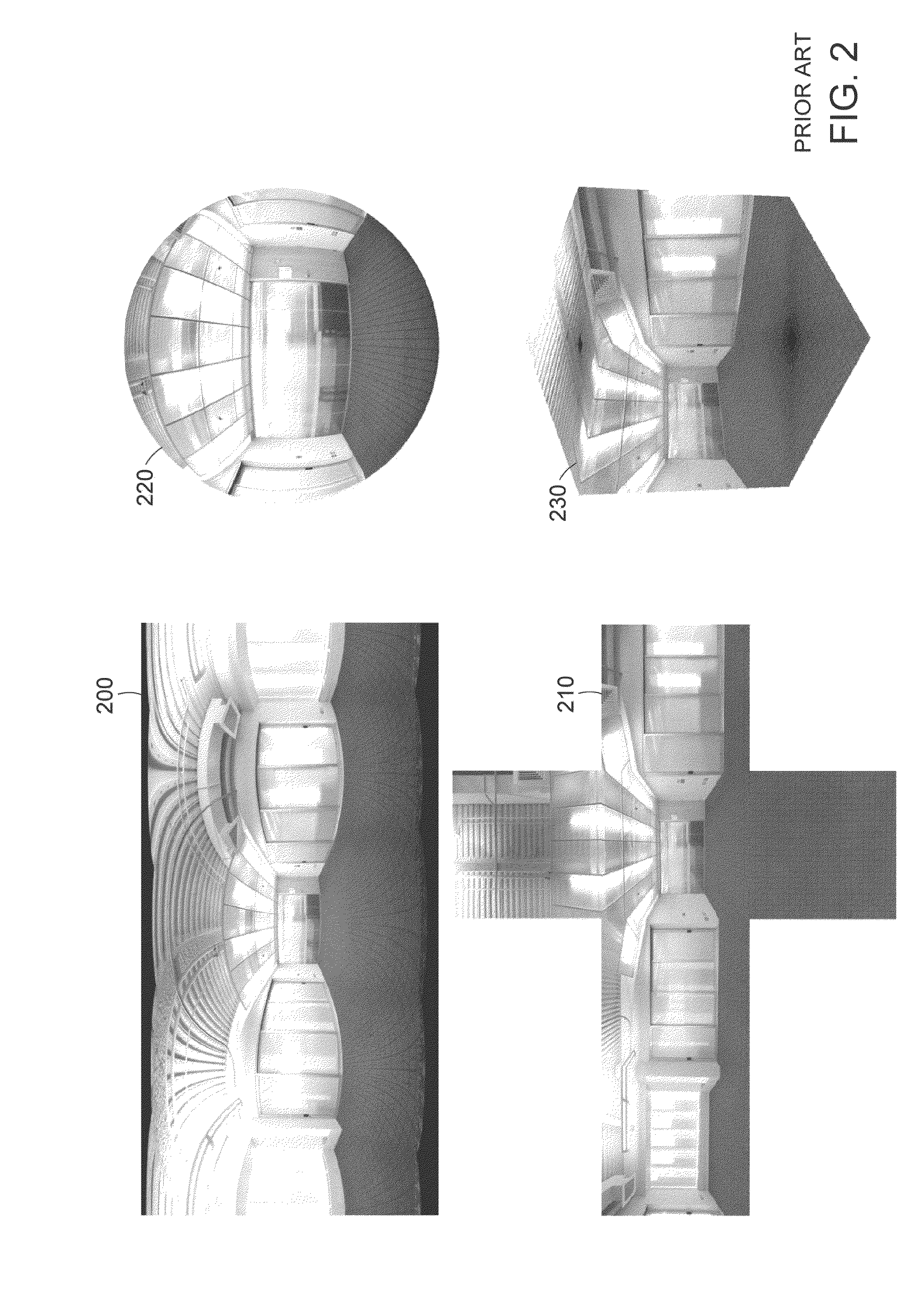Method for Inter-Scene Transitions
a technology of inter-scene transitions and transitions, applied in the field of computer graphics methods and systems, can solve the problems of inability to mentally connect two scenes, two panoramas are not inherently capable of describing, and current panoramic virtual tours have significant limitations
- Summary
- Abstract
- Description
- Claims
- Application Information
AI Technical Summary
Benefits of technology
Problems solved by technology
Method used
Image
Examples
Embodiment Construction
[0063]Note that as used in this description and the accompanying claims, the following terms shall have the meanings indicated, unless the context otherwise requires: The term “perspective view” shall mean a 2D view of an image in a world plane projected on an image plane. The image plane will frequently be a display surface, but in general, may be any plane. A “perspective rectangle” shall mean a 2D polygon in a perspective view which is a projection of a rectangle in world space onto the image plane. A “transitional parameter” shall mean a measure of the contribution of a first image versus a second image to a transitional object formed from a combination of the first image and the second image. For example, if the transitional object is derived from alpha blending the first image and the second image, the transitional parameter measures the degree of transparency and opacity of the contribution of each image to the transitional object. An “active element” shall mean an icon displ...
PUM
 Login to View More
Login to View More Abstract
Description
Claims
Application Information
 Login to View More
Login to View More - R&D
- Intellectual Property
- Life Sciences
- Materials
- Tech Scout
- Unparalleled Data Quality
- Higher Quality Content
- 60% Fewer Hallucinations
Browse by: Latest US Patents, China's latest patents, Technical Efficacy Thesaurus, Application Domain, Technology Topic, Popular Technical Reports.
© 2025 PatSnap. All rights reserved.Legal|Privacy policy|Modern Slavery Act Transparency Statement|Sitemap|About US| Contact US: help@patsnap.com



